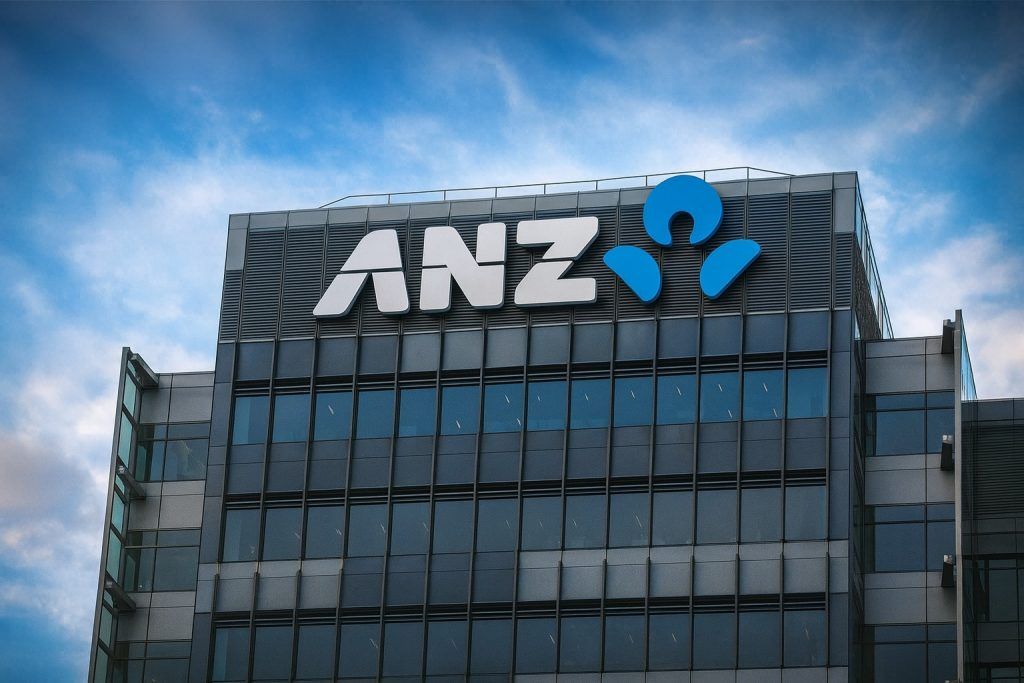Merck & Co., Inc. (NYSE: MRK) is firmly in the spotlight this weekend as the U.S. pharma giant juggles shareholder protection, a higher dividend, and fresh regulatory wins — all while its share price trades near the upper end of its 12‑month range.
Note: This article refers to Merck & Co., Inc., the U.S. company based in Rahway, New Jersey (ticker MRK on the NYSE), not German Merck KGaA (Xetra: MRK).
Key takeaways for 22 November 2025
- Merck urges investors to reject an unsolicited “mini‑tender” offer from Tutanota LLC, which is pitched at $65 per share, roughly 25–32% below recent MRK prices.Merck.com+1
- The Board has declared a first‑quarter 2026 dividend of $0.85 per share, up 4.9% from $0.81, payable 8 January 2026 to shareholders of record on 15 December 2025.Merck.com+1
- The FDA has just approved new Keytruda / Keytruda QLEX + Padcev regimens as perioperative treatment for cisplatin‑ineligible muscle‑invasive bladder cancer, based on strong Phase 3 data.Merck.com+1
- Merck reported Q3 2025 non‑GAAP EPS of $2.58 on revenue of $17.28 billion, beating expectations and guiding full‑year EPS to $8.93–$8.98 and revenue to $64.5–$65.0 billion.Merck.com+1
- Fresh Phase 3 HIV data show Merck’s investigational two‑drug regimen doravirine/islatravir (DOR/ISL) met its primary endpoint and was non‑inferior to standard three‑drug therapy in treatment‑naïve adults.Merck.com
- Institutional investors continue to adjust positions: some large firms are trimming stakes, while others are aggressively adding to MRK, with institutional ownership around 76%.MarketBeat+3MarketBeat+3
Merck (MRK) stock snapshot
As of the latest trading data, Merck shares are trading around $97.76, up about 2.9% on the day, after touching an intraday high of $100.25.MarketBeat
Key points from today’s quote and recent filings:
- Last price: $97.76
- 12‑month range: roughly $73.31 – $105.07MarketBeat
- Market cap: about $243 billion
- P/E ratio: ~15
- Dividend yield at new rate: about 3.5%, annualized ($3.40 per share).StreetInsider.com+1
The combination of a growing dividend, strong pipeline news, and a defensive pharma business model is helping keep MRK in focus for both income and growth‑oriented investors.
Merck warns shareholders: reject Tutanota’s discounted mini‑tender
The most urgent headline for Merck investors today is the company’s formal recommendation that shareholders reject a “mini‑tender” offer from Tutanota LLC.Merck.com+2Nasdaq+2
What is Tutanota offering?
- Bidder: Tutanota LLC (not affiliated with Merck)
- Offer type: Unsolicited mini‑tender
- Size: Up to 1,000,000 shares of Merck common stock
- Offer price:$65.00 per share
- Discount:
- ~24.7% below Merck’s closing price on 7 November 2025 ($86.28), the last trading day before the offer date.
- ~31.6% below the 20 November 2025 close ($94.97), the day before Merck’s press release.Merck.com+1
- Offer expiry: Currently scheduled to expire at 5:00 p.m. EST on 15 December 2025, unless extended.Merck.com+1
Why Merck is pushing back
Merck’s message to shareholders is blunt:
- The offer is well below the current market price for MRK.
- The bid is subject to numerous conditions, including Tutanota’s ability to secure financing.
- Merck is “not associated in any way” with Tutanota or the offer documentation.Merck.com+1
The company also highlights that mini‑tender offers typically target less than 5% of a company’s outstanding shares, which lets bidders avoid many of the disclosure requirements that apply to larger tender offers under SEC rules. As the SEC itself notes, such offers can “catch shareholders off guard” and may lead to investors selling at below‑market prices.Merck.com+1
Merck is urging shareholders who have already tendered shares to consider withdrawing them before the expiration date, following the procedures in Tutanota’s own documents.Merck.com+1
For most retail investors, the key takeaway is simple: this is not a takeover premium, it’s a discount. Anyone evaluating the offer should compare it carefully with the current MRK share price and, ideally, speak to a financial adviser before making a decision.
Dividend hike: Merck turns up the income stream
Income‑focused investors got good news this week: Merck’s board has raised the quarterly dividend to $0.85 per share for the first quarter of 2026, up 4.9% from $0.81.Merck.com+2SwingTradeBot+2
Dividend details
- New quarterly dividend:$0.85 per share
- Prior quarterly dividend: $0.81 per share (a 4.9% increase)SwingTradeBot
- Payment date:8 January 2026
- Record date:15 December 2025
- Ex‑dividend date:12 December 2025StreetInsider.com+1
At today’s price around $97–98, that implies an annualized yield of roughly 3.5%, comfortably above the average yield for the broader U.S. equity market.StreetInsider.com+1
Analysts and financial media are already highlighting Merck as a steady dividend payer alongside names like Altria and Genuine Parts in “yield hunting” round‑ups published today.SwingTradeBot+2AInvest+2
For shareholders, the higher payout:
- Reinforces Merck’s commitment to returning cash to investors.
- Signals management confidence in the company’s earnings power as it moves through the latter half of the decade and towards the post‑Keytruda era.
Fresh FDA approval: Keytruda / Padcev combo changes the bladder cancer landscape
On 21 November 2025, the U.S. FDA approved KEYTRUDA® (pembrolizumab) and KEYTRUDA QLEX™ (pembrolizumab and berahyaluronidase alfa‑pmph), each in combination with Padcev® (enfortumab vedotin‑ejfv), as perioperative treatment for adults with muscle‑invasive bladder cancer (MIBC) who are ineligible for cisplatin‑based chemotherapy.Merck.com+2Seeking Alpha+2
What the new approval covers
The regimens are approved:
- As neoadjuvant therapy (before surgery)
- Continued as adjuvant therapy (after surgery)
- For cisplatin‑ineligible MIBC patients undergoing radical cystectomy.Merck.com
These are the first PD‑1 inhibitor + antibody‑drug conjugate (ADC) regimens approved for this patient population, marking a significant expansion of Merck’s Keytruda franchise.Merck.com+1
The data behind the decision
Approval is based on the Phase 3 KEYNOTE‑905 (EV‑303) trial, in which KEYTRUDA + Padcev as perioperative therapy showed:Merck.com
- A 60% reduction in the risk of event‑free survival events vs surgery alone (HR 0.40).
- A 50% improvement in overall survival vs surgery alone (HR 0.50).
- A pathologic complete response (pCR) rate of 57.1% vs 8.6% in the control arm.
On the Street, the reaction has been clear: recent coverage attributes Friday’s strong move in MRK stock partly to this bladder cancer approval, with commentators suggesting the data are “practice‑changing” for a group of patients that previously had very limited options.StockAnalysis+2GuruFocus+2
HIV pipeline: DOR/ISL delivers pivotal Phase 3 win
Beyond oncology, Merck’s HIV portfolio produced fresh positive news on 19 November 2025, when the company reported topline Phase 3 results for its investigational, once‑daily two‑drug, single‑tablet regimen of doravirine/islatravir (DOR/ISL, 100 mg / 0.25 mg) in treatment‑naïve adults with HIV‑1 infection.Merck.com
Key highlights from the trial:
- DOR/ISL met its primary efficacy endpoint, achieving HIV‑1 RNA <50 copies/mL at Week 48 and demonstrating non‑inferiority to standard bictegravir/emtricitabine/tenofovir alafenamide (BIC/FTC/TAF).
- The safety profile of DOR/ISL was comparable to BIC/FTC/TAF.Merck.com
- The FDA has already accepted the New Drug Application for DOR/ISL for certain virologically suppressed adults, with a PDUFA target action date of 28 April 2026.Merck.com
If approved, DOR/ISL would be the first non‑integrase inhibitor two‑drug regimen to match a standard three‑drug INSTI‑based regimen in a Phase 3 trial of treatment‑naïve adults — a notable milestone in the trend towards simplified HIV therapy.Merck.com
Earnings backdrop: solid Q3, cautious long‑term watch
Today’s headlines sit on top of strong Q3 2025 financial results reported in late October.
According to Merck and multiple earnings summaries:Longbridge SG+3Merck.com+3Investing.com+3
- Q3 2025 revenue:$17.28 billion, up around 4% year‑over‑year.
- Non‑GAAP EPS:$2.58, beating consensus estimates of about $2.36.
- GAAP EPS (diluted):$2.32.
- Keytruda sales: roughly $8.1 billion, up mid‑single to high‑single digits vs last year.
- Guidance:
- Full‑year 2025 revenue:$64.5–$65.0 billion
- Full‑year non‑GAAP EPS:$8.93–$8.98
Analysts continue to flag the looming Keytruda patent cliff (late 2020s) as the biggest strategic risk, but recent pipeline advances, acquisitions (including the announced buyout of Cidara Therapeutics earlier this month), and expanded uses of newer drugs like Winrevair are seen as part of Merck’s diversification strategy.GuruFocus+2Investors.com+2
Institutional flows: mixed moves, but strong overall support
A cluster of 13F‑based articles published today shows active institutional repositioning in Merck:
- MUFG Securities Americas Inc. increased its MRK stake by 24.3% in Q2 to 55,652 shares (about $4.4 million).MarketBeat
- Evelyn Partners Investment Management LLP grew its position by 112.8% to 15,376 shares (~$1.22 million).MarketBeat
- Richard W. Paul & Associates LLC lifted holdings by 43.5% to 12,256 shares (~$970,000).MarketBeat
- Catalyst Funds Management Pty Ltd initiated a new 4,800‑share position, valued at about $380,000, and highlighted Merck’s recent dividend hike and earnings beat in its filing summary.MarketBeat
- On the other side, Rhumbline Advisers trimmed its stake by 8.5%, though it still holds over 4.1 million shares, worth about $325 million.MarketBeat
Across these reports, institutional and hedge‑fund ownership is consistently cited around 76% of Merck’s outstanding shares, underscoring deep professional investor engagement with the stock.MarketBeat+3MarketBeat+3MarketBeat+3
What today’s news means for Merck (MRK) investors
Putting the various strands together, here’s how today’s developments fit into the bigger MRK story:
- Shareholder protection is front and center.
Merck’s explicit warning about Tutanota’s mini‑tender is essentially about preventing shareholders from selling shares far below market value under confusing conditions. It’s not about a change of control; it’s about investor awareness. - The dividend story is getting stronger.
A near‑5% increase in the quarterly dividend and a yield of roughly 3.5% at current prices strengthen Merck’s income profile, which is already a key part of the investment case. - Pipeline and approvals support the post‑Keytruda narrative.
- The Keytruda / Padcev bladder cancer approval broadens a flagship franchise into a high‑need perioperative setting.
- The DOR/ISL HIV data add another potential growth pillar in infectious disease.
- Recent acquisitions, including Cidara, add breadth in areas like anti‑infectives.GuruFocus+2Merck.com+2
- Valuation remains reasonable but not cheap.
With a P/E around 15, beta well below 1, and a rising dividend, Merck still screens as a defensive large‑cap with a mix of income and growth — though the share price is much closer to its 12‑month high than its low. - Key risks haven’t disappeared.
- The Keytruda patent cliff in the latter part of the decade remains the main overhang.Barron’s
- Competitive pressures in oncology and vaccines, regulatory changes, and pricing pressure (including U.S. Medicare negotiations) all continue to shape the long‑term outlook.Merck.com+1
For now, though, 22 November 2025 finds Merck in a relatively strong position: protecting shareholders from a discounted offer, lifting its dividend, winning key FDA approvals, and posting solid earnings.









